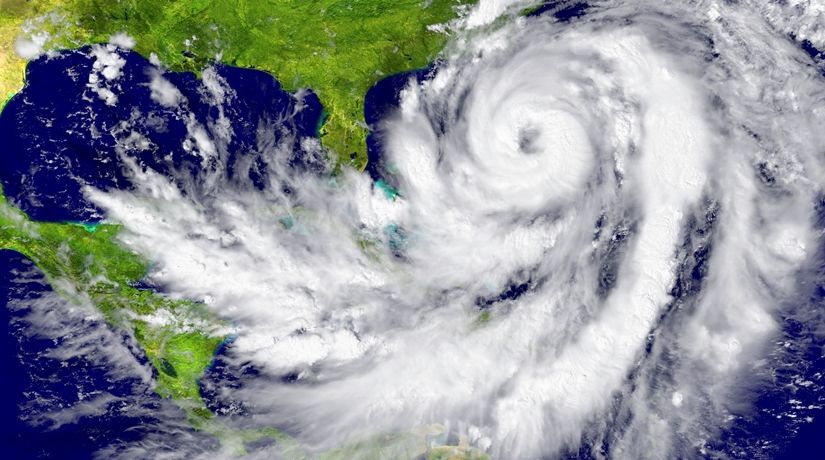Insurance companies use “act of God” to describe any fluke of nature, but should we blame God for all of these? What acts are really of God, and what do they mean for your life?

The term act of God often inspires dread. Insurance companies use it to describe terrible events that are impossible to prevent, and the images that come to mind include hurricanes, tornadoes, flash floods, tsunamis and other natural calamities that we do not want to impact our lives.
Are the insurance companies correct? Are these events actually “acts of God,” or are they merely natural disasters? If they belong to God, then why does He commit them?
Time and chance
Often when people talk about “acts of God,” God has not directly acted in whatever is going on. In the book of Ecclesiastes, Solomon made the powerful observation that random things—what he termed “time and chance”—happen to everyone (Ecclesiastes 9:11).
Jesus talked about 18 men who were killed when a tower collapsed on them. Some apparently thought these men must have been worse sinners than everyone else around them! But Jesus said, “Do you think that they were worse sinners than all other men who dwelt in Jerusalem? I tell you, no; but unless you repent you will all likewise perish” (Luke 13:4-5). We must be careful about blaming victims—or God—for disasters. It seems these 18 men simply had the terrible misfortune of being in the wrong place at the wrong time.
God doesn’t always personally initiate events on the earth. Sometimes, towers will fall and storms will rage as part of the natural order of a world that has cut itself off from God. Because of humanity’s rejection of God, He often takes a hands-off approach to humanity during this evil age. (For more about this, see “Why Does God Allow Suffering?”)
God has all power and of course could stop these “time and chance” incidents from occurring, but in His supreme wisdom He allows them—for now. Just because He allows them, however, does not make them “acts of God.”
However, the Bible shows that not everything that happens is just time and chance. God and the other beings of the spirit realm do have active roles in what goes on in this physical world.
Not God
When it comes to suffering from what some might call “acts of God,” few people in the Bible suffered more than the biblical figure of Job. In the span of a single day, his flocks were devoured by the “fire of God” and a terrible wind brought down the house where all of his children were feasting, killing all of them (Job 1:16-19).
Everyone around him told him that it was from God—and it’s quite likely that Job himself believed that God did all of this. If Job had gone to his insurance agent, these surely would have been termed “acts of God.”
But nothing could be further from the truth.
A glimpse behind the scenes reveals that God didn’t destroy the flocks or Job’s family. God had protected Job and his possessions for years. Neither was it time and chance hammering Job with the worst timing possible.
The reality is that Satan the devil, the archenemy of God, was acting in Job’s life to destroy him as totally as God would allow (Job 1:6-12). From our vantage point on earth, we can’t know the source of disasters. But the Bible shows that some disasters have their origins from the most wicked being in the universe.
A punishment for sins
Yet there are times when God is behind natural disasters. God actually uses the weather to punish mankind on occasion. God clearly says that He will withhold the rain when His people don’t obey Him (Deuteronomy 28:24). As evidenced throughout history, God can control the elements, and He is quite capable of using them to punish those who go against Him.
The Bible records in prophecy that God will use such events to get people’s attention and to punish them for their sins. Famines, disease epidemics and earthquakes will increase before Christ’s return (Matthew 24:7). The book of Revelation is full of the devastating events that God will bring upon the world in the day of His wrath. (To understand these important prophecies, read our free booklet The Book of Revelation: The Storm Before the Calm.)
God does not delight in punishment, however. The reality is that He would much rather bless us and give us the best of everything (Deuteronomy 30:19). God does punish, but He also does much more!
Far more
A problem with the term acts of God is that it can appear to limit God to merely controlling these natural events, when the truth is that His acts are far more than droughts, floods and earthquakes. God controls the physical world, but He is not a part of it. Instead, God is supernatural and many of His actions are invisible.
Our existence itself is an act of God. With a command, God brought the entire universe into being (Genesis 1:1). God created everything that humanity can see—not just the storms and the landslides, but the beautiful flowers, the magnificent waterfalls, the mighty oceans and the shimmering rainbows. Most of what God does is the exact opposite of destruction; He creates and rebuilds so that we can enjoy.
One of God’s greatest acts is something that you will never read in an insurance report—the miracle of calling individuals into His family. God’s calling means opening someone’s mind in order for him or her to understand and act on God’s magnificent truth as revealed through the Bible. This is an awesome act that only God can do (John 6:44), and it is far more incredible than tornadoes and flash floods.
Just as God made the entire physical world, one of His greatest acts will be to produce a new creation—a spiritual creation. God is creating a new person in each one of His followers (Ephesians 4:24). In fact, this new creation is very likely one of God’s greatest acts ever! God has made humanity in His image (Genesis 1:26) with the goal of making us His sons and daughters (Hebrews 2:10; 2 Corinthians 6:18)!
God gives us the chance to work with Him in this great act. We are to be putting on this new person so that we can be transformed into spirit beings when Jesus Christ returns (1 Corinthians 15:50-53). As these wonderful acts come to fulfillment, we can be among those who cry out in praise to the loving and merciful God: “Great and marvelous are Your works, Lord God Almighty! Just and true are Your ways, O King of the saints!” (Revelation 15:3).
For more about how you can respond to this great act of God, download and study the scriptures covered in our free booklet Change Your Life!





